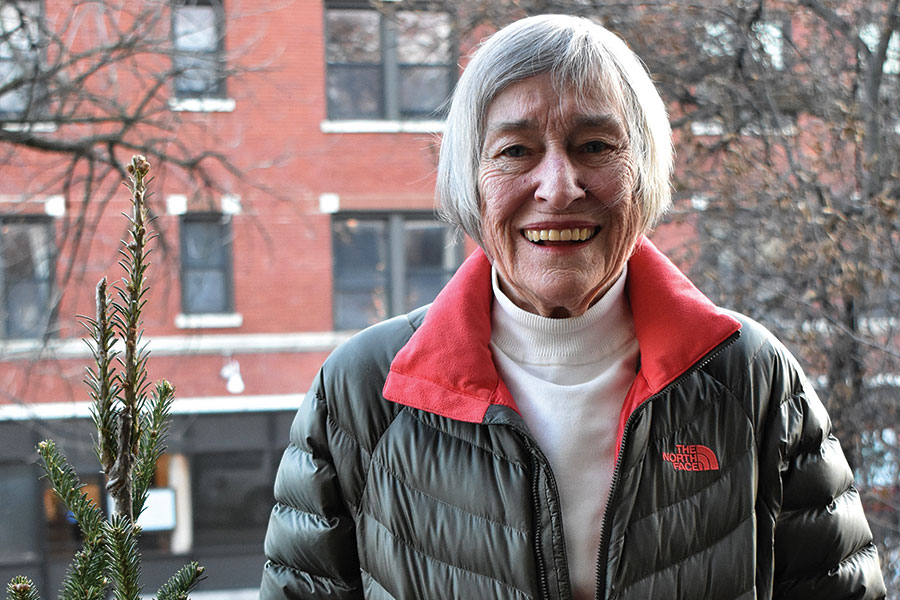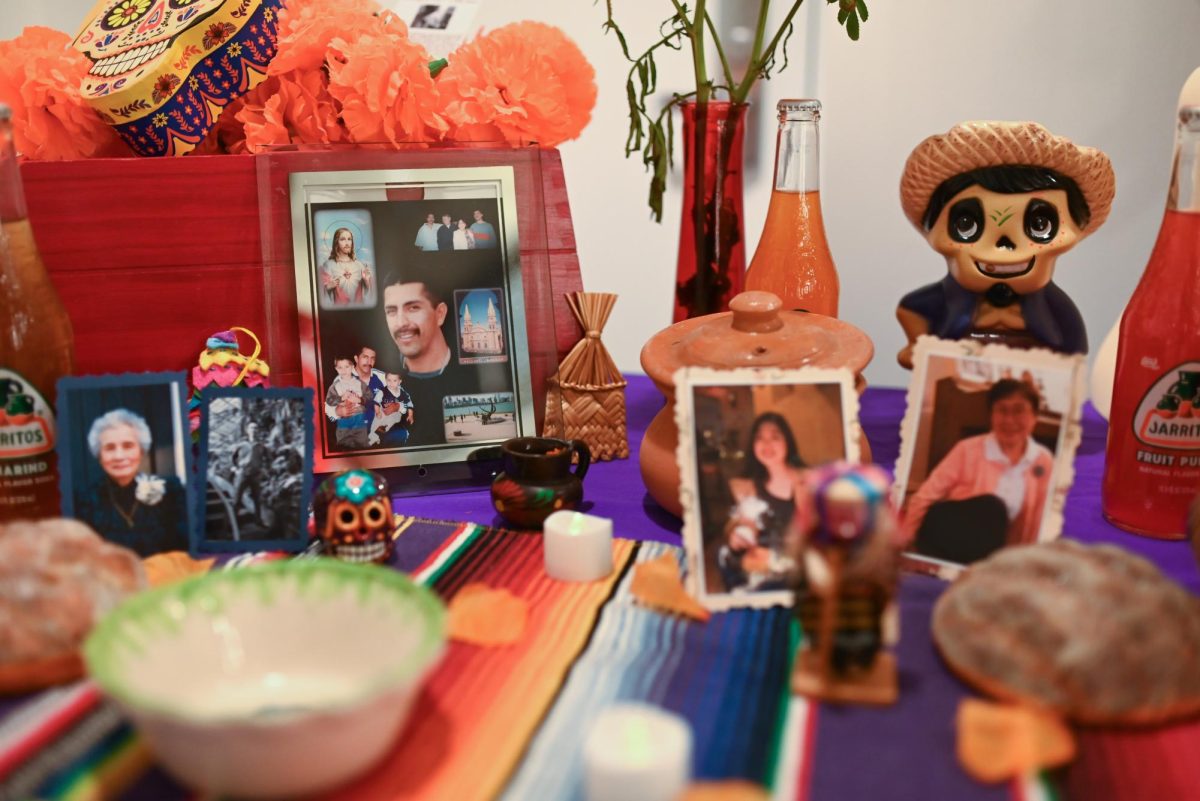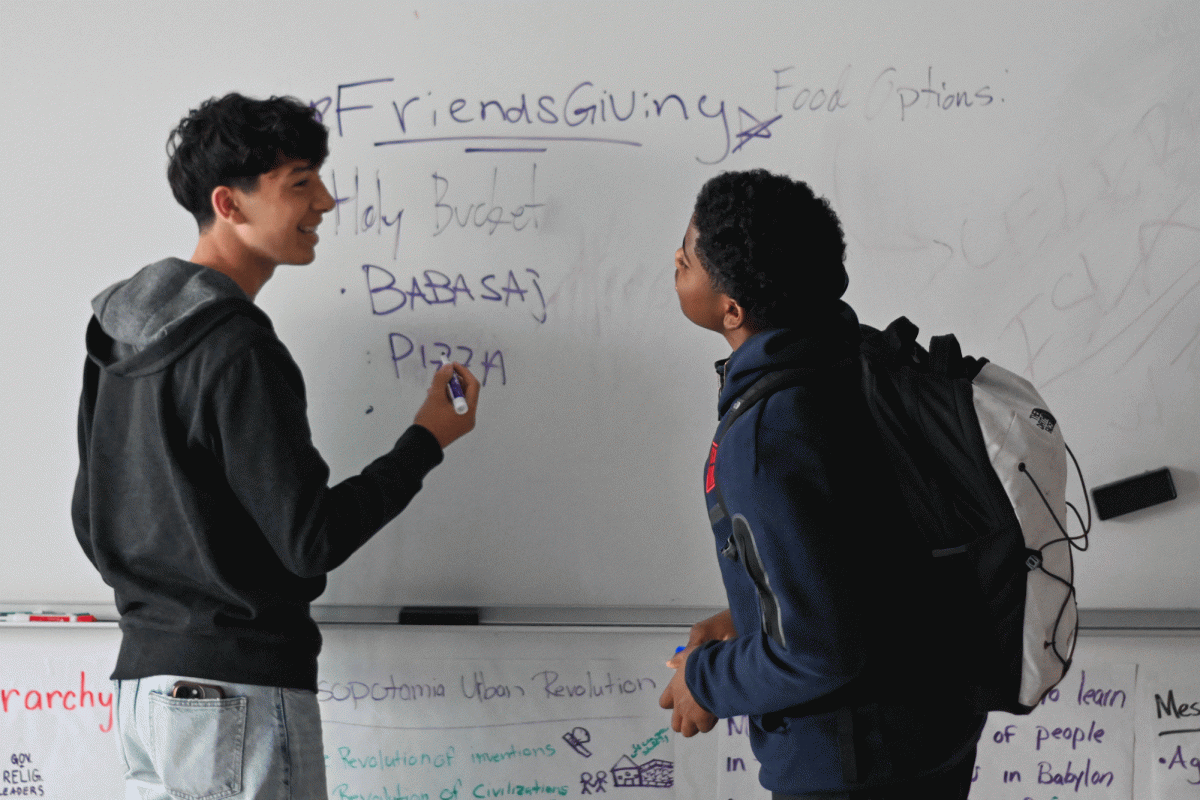Alumna, political veteran encourages teens to lead the way
PASSING THE TORCH. Smiling through the cold afternoon, Former Illinois representative Barbara Flynn Currie poses in front of her home in Hyde Park. Ms. Currie encourages students to get involved in issues they care about however they can, even if it’s just writing their representatives.
December 11, 2019
While working as a graduate student for a political science professor in 1978, Barbara Flynn Currie ran into Michael Shakman, a friend of hers for whom she had campaigned for the position of delegate to the 1970 Illinois Constitutional Convention.
State legislator James Robert Mann had just announced his retirement, opening up his seat in the Illinois House of Representatives.
“I asked if he were planning to run,” Ms. Currie, U-High class of 1958, said. “He said, ‘No. Why don’t you?’”
This chance encounter was the start of a 40-year career in the Illinois House. Though filled with highs and lows, she said it was ultimately worth it, and encourages today’s teens to engage with today’s issues, both with their elected representatives and with each other.
Ms. Currie served as the majority leader from 1997 until her retirement in January. “The legislature is a great place to be, a great place to work, a great place to push for change that is important to the folks back home,” she said.
These days, she notes how vocal students have become on issues that are still in contention, such as gun control and climate change.
“Their willingness to speak out, their willingness to go to Capitol Hill, these are all really impressive things that the grownups had better sit up and pay attention,” she said. “I’m excited at this activism and I hope that it won’t fall on deaf ears.”
Some of those students speaking out include Lab students who attended the global youth climate strike Sept. 20.
“It is so important for younger generations to understand the massive impact we have on our planet because we are the ones inheriting this earth. We are the ones who must prioritize planet over profit,” said Orla Molloy, who helped organize the Lab delegation to the strike and who is organizing a group to join another climate strike Dec. 6.
Other Lab activists include members of the Refugee Awareness Club, who partnered with RefugeeOne to resettle a family of five from Syria.
“I do think it is meaningful that we are doing this as students, especially because we’ve been able to make such a difference,” Claire Duncan, the club’s president, said. “I think that it’s sometimes hard to see these crises happening and not be able to do anything about them, so us bringing awareness to them helps.”
Ms. Currie stressed that students have just as powerful a voice as others, whether speaking out in a group or simply writing to their representatives.
“A reasonably well-written—and it doesn’t have to be long—letter does make a dent. It makes a difference,” she said.
During her tenure, Ms. Currie supported progressive legislation on issues ranging from early childhood care to environmental protection, and said that she felt she was able to accomplish more than she ever hoped, just by pushing for it, year after year, until it happened.
“We have marriage equality. We eliminated the death penalty in the state of Illinois. When I first went to Springfield, I didn’t think either of those was in the realm of possibility,” she said.
Ms. Currie received the Laboratory Schools Distinguished Alumna Award in 1997, and she remarked that she was a pioneer in women’s representation in politics, as it was relatively unheard of for a woman to run for office.
“One of my high school classmates, Sybil, who was a very good friend, said at one point that she’d like to marry a United States Senator,” Ms. Currie said. “It didn’t occur to her, at that age, that in that period of time, in the late ‘50s, that one might be a United States Senator.”
Her retirement earlier this year ended the chapter of a long career and opened the way for the next generation to take charge, as she encouraged.
She said, “It’s time for the grownups to get in line behind them.”












